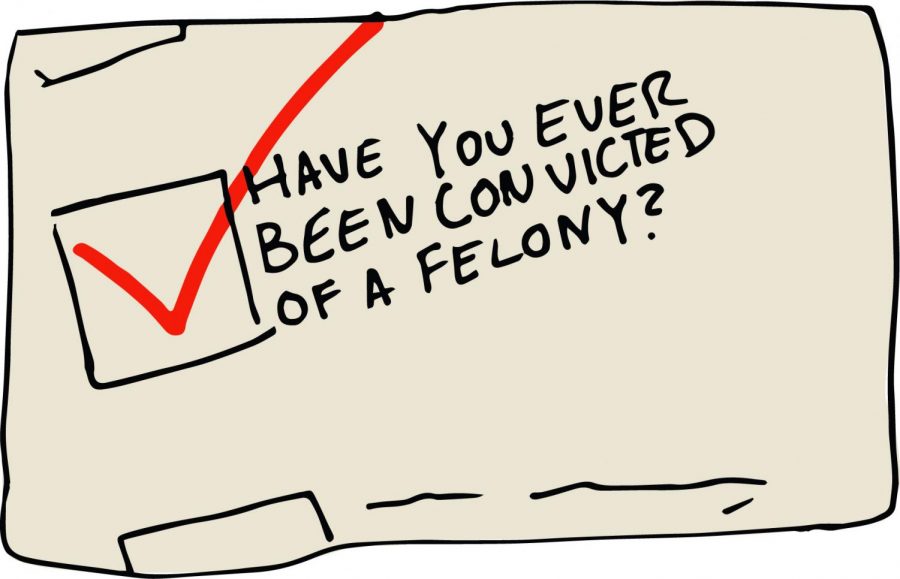Mayor proposed to ban box law in Chicago
Mayor proposed to ban box law in Chicago
October 20, 2014
Mayor Rahm Emanuel proposed a new city ordinance on Sept. 29 called Ban the Box, which would eradicate the current box law that creates barriers to employment for convicted felons and those with criminal records.
Emanuel teamed up with Alderman Walter Burnett (27th Ward) and Alderman Emma Mitts (37th Ward) to draft the ordinance as a way to allow applicants a chance at employment instead of facing immediate inquiries from employers about past felonies. However, if applicants are called back for a second interview, the employer will have the right to inquire about past criminal activity.
“Too often, qualified people never receive a fair shot at entry-level job opportunities because they are forced to check a box on a job application and acknowledge prior arrest, even if it has no bearing on their ability to do the job,” mayor Emanuel said in a Sept. 29 press release.
Walter Boyd, executive director at St. Leonard’s Ministries, said he supports the new ordinance and commended Emanuel’s actions, which could help Chicagoans gain employment and reach their goals.
“The box has been an impediment or obstacle in the path for people with criminal records, not [only] to employment, but just to get considered,” Boyd said. “Employers oftentimes never get to review a person’s suitability for employment simply because someone reacts to the fact that they have a criminal record.”
Boyd said residents with criminal background records will be given the opportunity to present their qualifications for a position, and employers can weigh that along with their criminal record and make a sound business decision. However, it is something that is not being done now in Chicago.
“People who have been clean for 10, 15, 20 years and haven’t re-offended still can’t get a job,” Boyd said. “People are still looking at their old record or offense that took place.”
Ex-felon Joseph Bradley, a case manager for a nonprofit organization in the city, said the ordinance is pointless for people like him. He said the stigma of being a convicted felon outweighs the skills and talents an ex-felon may have in order to effectively complete the job he or she is applying for.
“What’s going to be the difference?” Bradley said. “I’m still not going to get the job. So am I wasting their time or am I wasting my time?”
Although Bradley said the proposed ordinance will allow ex-felons and people with criminal records to have an opportunity to interview, he said he does not think it will guarantee anything beyond that.
“I’m going to get my foot through the door, but that’s probably as far as I’m going to get,” Bradley said. “I’m pretty sure a lot of organizations do not like hiring ex-felons.”
Jasmine Williams, a case coordinator for Employment and Employer Services, said the box law should not be removed. She said removing the law will not change or increase the number of felons who work if employers remain opposed to hiring ex-felons. Williams said they are successful because they broke down their own barriers and overcame obstacles by hard work.
“There are felons right now who are working due to perseverance,” Williams said. “I don’t think it’s going to necessarily increase the amount of felons that are getting hired. If companies decide they don’t want to hire felons, [then] they won’t hire them, and if they’re willing to give them a chance, then they will.”
Bradley was arrested and convicted of armed robbery in 1993 and spent four and a half years in prison. When he entered prison, he did not have a G.E.D., but once he was released in 1998, he went on to obtain his G.E.D. and two associate’s degrees. Bradley is currently working on his second master’s degree and said he wants employers to take him seriously, but he said removing the box law will not solve the problem because companies do not want to hire ex-felons.
“Why shouldn’t I get paid for the work that I do?” Bradley said. “[I should not be] stereotyped as an ex-felon. Even though I have a master’s degree, it’s still hard for me to find a decent paying job because I’m an ex-felon.”
Although it may be difficult for ex-offenders to get a job because of their criminal records, Boyd said this ordinance is a step in the right direction and will allow a fair system that will level the playing field for people with criminal records.
“I think there will be employers who, after seeing a person’s qualifications, [will] be persuaded [to] take into consideration how long ago their offense was, the age of the person at the time of the offense, what they have done to remediate the behavior and what skills they have that will be of interest to the employer,” Boyd said. “When those things are taken into consideration, I think many employers will give a person a second look after discovering that they do have a criminal record.”








